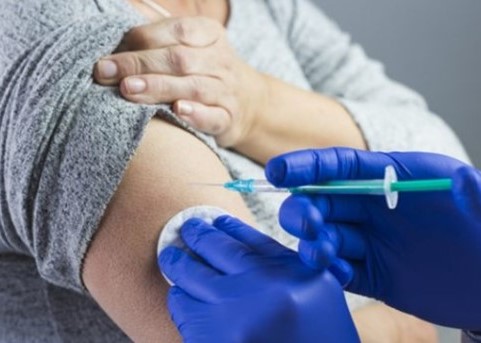Voices from the Sylff Community
Drawing on the field of health economics, 2002 Sylff fellow Matheus Albergaria contemplates the consequences of the COVID-19 pandemic for collective health and possible solutions. Vaccines are one such solution, as well as social distancing and the wearing of masks in public places. But for these measures to be effective, it is key that individuals consider the impact that their actions may have on collective well-being.
* * *
 The first records of the so-called coronavirus 2019 disease (COVID-19) occurred in late 2019. As the name suggests, COVID-19 is caused by the severe acute respiratory syndrome coronavirus 2 (SARS-CoV-2), being generally associated with such symptoms as fever, dry cough, and tiredness, although other symptoms may also appear in more severe cases of the disease. Throughout the year 2020, the spread of the virus across numerous countries occurred at an astonishing speed; recent data from October 2020 suggest the confirmation of more than 190 million cases, as well as deaths in excess of 4 million worldwide.
The first records of the so-called coronavirus 2019 disease (COVID-19) occurred in late 2019. As the name suggests, COVID-19 is caused by the severe acute respiratory syndrome coronavirus 2 (SARS-CoV-2), being generally associated with such symptoms as fever, dry cough, and tiredness, although other symptoms may also appear in more severe cases of the disease. Throughout the year 2020, the spread of the virus across numerous countries occurred at an astonishing speed; recent data from October 2020 suggest the confirmation of more than 190 million cases, as well as deaths in excess of 4 million worldwide.
An important aspect related to the COVID-19 pandemic concerns its consequences in terms of collective health. Few people outside the field of economics are aware of the existence of a field of study called “health economics,” in which scholars employ economic logic to evaluate health policy interventions, such as in the case of COVID-19. In this article, I will illustrate possible ways in which we can use the lessons from this field to understand some characteristics of the pandemic, as well as possible solutions related to it.
Since collective health can be seen as a special category of goods needed by a society—so-called public goods—it is important to take into account the potential implications derived from such a categorization. Specifically, public goods have two unique characteristics: they are (i) “non-excludable” and (ii) “non-rival.” That is, it is not possible to exclude anyone from their consumption (non-exclusionary property), while at the same time, the consumption of the goods by one person does not necessarily affect the consumption of other people in society (non-rivalry property). Examples of public goods—in addition to public health itself—are national security, maritime lighthouses, fireworks, public parks, and beaches. (It is worth noting that all these examples are non-excludable and non-rival goods.)
The main challenge related to public goods concerns the possible emergence of differences between individual interests and collective well-being. For example, in the case of public health issues, a person may wonder if it makes sense to comply with a period of quarantine at home, wear a mask in public places, or maintain social distance, as their actions may have seemingly insignificant impacts in social terms. In other words, in situations like this, a person may ask the following question: “Will my actions have any significant impact on the rest of society?” If the answer to this question is no, the person is likely to have little incentive to cooperate with collective well-being, since he views his individual actions as socially insignificant. One problem arising from thinking along these lines is that if many people think this way, it will be very difficult for society to achieve public health goals (as well as any goal involving collective action). Such situations are known as “social dilemmas”; actions that apparently make sense from an individual point of view do not necessarily lead to the best results from a social point of view. This fact has important implications for the current pandemic situation that we are experiencing in the world. Since collective health can be seen as a public good, a high degree of coordination between individual actions and society’s goals becomes necessary. The biggest challenge for a government in a context involving public goods is to coordinate individual actions so as to obtain results that are satisfactory for society as a whole.
Another important aspect related to the COVID-19 pandemic concerns the occurrence of a phenomenon known by economists as “externalities” (or “external effects”). Basically, externalities correspond to “market failures,” that is, situations in which the market system ceases to function properly, generating inefficient results from a societal point of view. In such situations, it would be possible to improve the situation of some people in society without necessarily harming others—that is, it would be possible to generate efficient solutions, economically speaking.
Externalities occur when the actions of an individual or firm have unplanned consequences on other parties (similar to the side effects of any action, which can be both positive and negative). For example, in the case of the COVID-19 pandemic, there is the possibility of negative externalities occurring, since some people may infect others without even knowing that they are infected with the coronavirus. (In fact, there are several reports of asymptomatic cases of the virus.) That is, even without having the intention of harming other people, an infected person can end up harming society as a whole.
An extreme example of the occurrence of negative externalities is the “Tragedy of the Commons,” a parable created in the nineteenth century to explain the potential adverse consequences of situations involving goods known as “common resources.” Although these goods are excluding as public goods, they are rivals—that is, the consumption of the good by an individual affects its availability to other individuals. Examples of common resources would be common property land, as well as fish in the sea and some animal species. (Not coincidentally, this parable has been used extensively in biology.) According to this “tragedy,” differences between individual interests and social interests could lead to a situation in which society ends up losing out as a whole. For example, a situation in which all people in a society have access to a common resource—such as the commons in England for a time—raises the possibility of the emergence of patterns of excessive consumption of that resource, which could lead to the society ending up in a worse situation in terms of social welfare. (The commons could become sterile, in this case.)
But what do these hypotheses say to us? First, the occurrence of market failures along the lines discussed here may suggest a more active role for governments around the globe. Since the market does not always result in efficient situations from a social point of view, there may be a role for government in the economy. For example, one way for governments to alleviate the pandemic’s adverse effects is by evaluating the occurrence of externalities between individuals in the current context. Additionally, the fact that the coronavirus displays patterns of complementarity with other sources of morbidity—such as obesity, diabetes, cancer, and heart problems—makes the case for the government to implement public policies focused on disseminating information related to possible forms of contagion.
A potential solution to the COVID-19 pandemic that has been widely publicized by the media and debated by society in recent times is the creation of vaccines capable of protecting individuals from the adverse effects of the virus. From an economic point of view, an effective vaccine in combating the virus must at least have two basic properties. First, the vaccine must have the characteristics of what economists call a “public good”: non-exclusiveness (no person should be excluded from its reach) and non-rivalry (the fact that a person receives the vaccine should not prevent other people from receiving it). Taken together, these two characteristics could justify a vaccine supply to be provided by the government in a pandemic context.
Second, unlike the virus, a vaccine must be associated with the occurrence of positive externalities. In the case of the current pandemic, an effective vaccine must be able to generate a kind of “spillover effect” in terms of immunization. Specifically, the fact that a person is vaccinated could prevent other people from being infected by the virus over time (a result that depends on the effectiveness of the vaccine in question). Ultimately, vaccines generate positive externalities.
One way to have a vaccine with these characteristics would be through its provision and free distribution by the government. Although there are substantial costs associated with such an undertaking, we must take into account the potential costs—of greater magnitude, probably—associated with the possible occurrence of a new wave of contagions in the world if an insufficient number of people are vaccinated.
Another way for governments to combat the adverse effects of the pandemic is through the introduction of public policies based on so-called merit goods, goods that the government obliges people to consume, assuming that they are not always able to make favorable choices for their own well-being. In the case of the current pandemic, two examples of such goods are the policy of social distancing and the wearing of masks in places such as supermarkets or sports gyms.
The situations described in this article point to the importance of considering differences between individual interests and collective well-being. In other words, what is best for an individual or group of individuals may not be better for society as a whole. A potential way to alleviate the harmful effects of the pandemic is through the collaboration of everyone in society: if one person collaborates—taking vaccines, following the quarantine regime, wearing masks in public places, and maintaining social distance—everyone benefits from it. Ultimately, it is important to consider the interaction between individual interests and collective well-being in an increasingly complex and diverse society where market failures may occur. From an economist’s point of view, possible solutions to the pandemic are not easy, although they are possible as long as each person considers the possible impacts of their actions on society as a whole.
